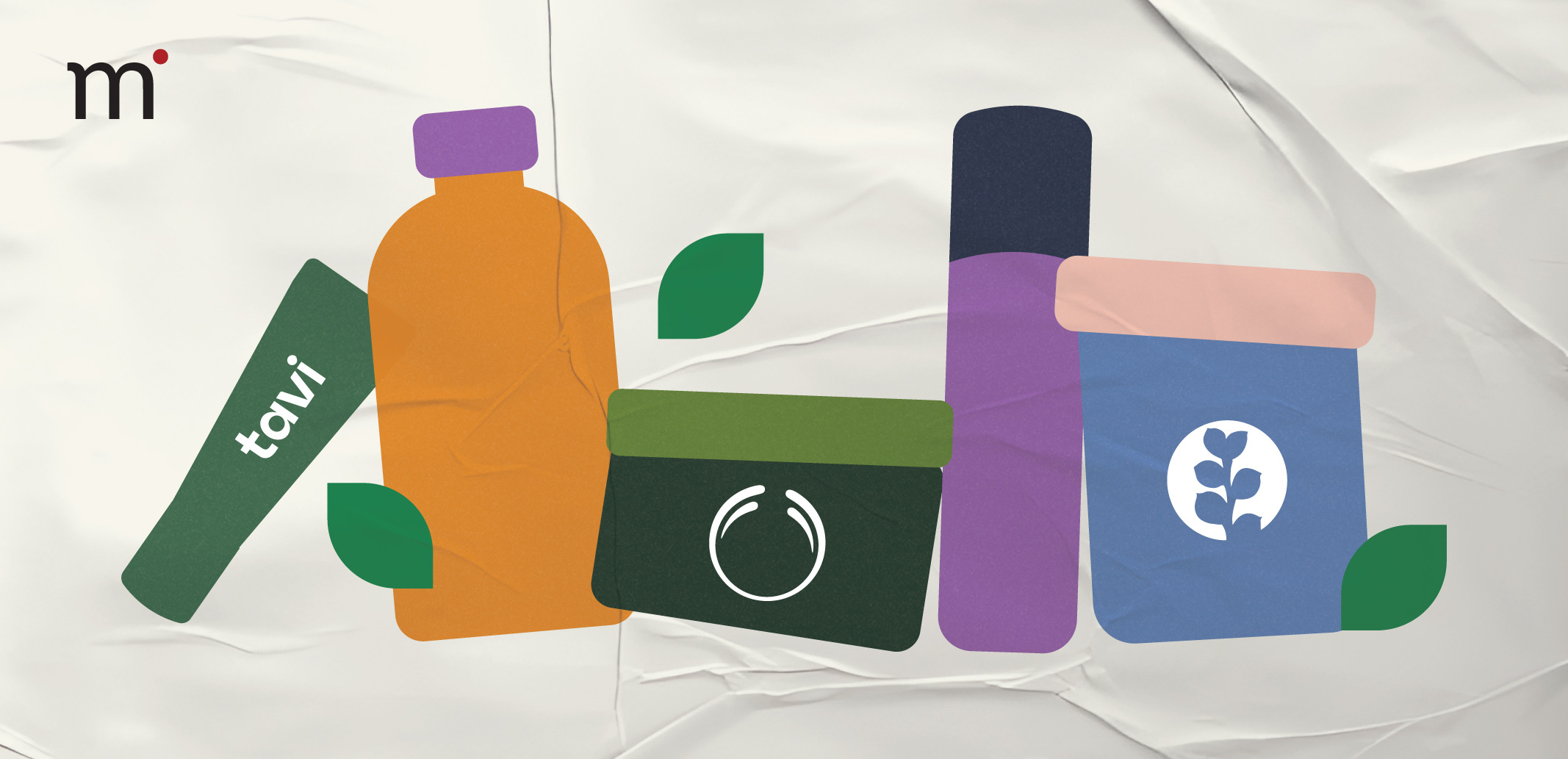
Sustainable Product Packaging
16 September 25
Packaging is more than just a wrapper; it's the first conversation a brand has with its audience. How a product feels in your hands can shape perception and foster emotional engagement. As sustainability becomes a thing, today’s packaging isn’t merely about looks; it’s a green flag signal showing whether a brand truly upholds responsibility. But how can this commitment translate into cardboard, bottles, or any other packaging material?
When we talk about sustainable packaging, there are several key aspects to consider. What we can analyze first is the material choice. For makeup or skincare, glass and aluminum often stand out as better options because they protect the product well and also they elevate the sense of quality. Yet deciding on these materials isn’t always straightforward. The weight, durability, and overall look must align with a brand’s identity. For US skincare brand Pangea Organics, it took more than 2 years of analysis for them to finally choose molded fiber, aluminum, and glass for their bottles. To ensure sustainability doesn’t compromise aesthetics, they embedded topographical maps into the packaging design, symbolizing the ingredient’s source. This shows that sustainability goes beyond material—it gains deeper meaning when it also honors the farmers and origins of each ingredient.
Closer to home, local brand Tavi applies a different approach through smart design. Their lock-system packaging relies on single-use cardboard folded into unique shapes that function effectively without excessive glue or tape. It may take extra effort to engineer, but the result is rewarding—not just visually, but also emotionally, with small touches like quotes, reuse tips, or transparent ingredient details. To push sustainability further, Tavi uses soy-based ink, which degrades four times faster than petroleum-based alternatives and leaves a lighter impact on soil and groundwater. Here, material and design work hand in hand to create packaging that truly respects the planet.
Alternately, more companies are moving toward refillable and returnable systems. The Body Shop Indonesia, for instance, has rolled out Refill Stations across more than 28 stores nationwide. Customers can bring back their empty bottles to refill essentials like shower gel, handwash, shampoo, or conditioner. This not only reduces plastic waste but also helps customers build more mindful habits—reusing what they already have, avoiding waste pile-up at home, and feeling part of a larger movement toward sustainability.
In the end, packaging is no longer just a protective layer. It’s where value, responsibility, and human connection intersect. At Milestone, we believe in creating more than packaging. We design experiences to carry meaning. From concept to execution, we ensure your brand’s story is wrapped beautifully, responsibly, and with purpose. Let’s collaborate to craft packaging that looks good, feels right, and brings good.